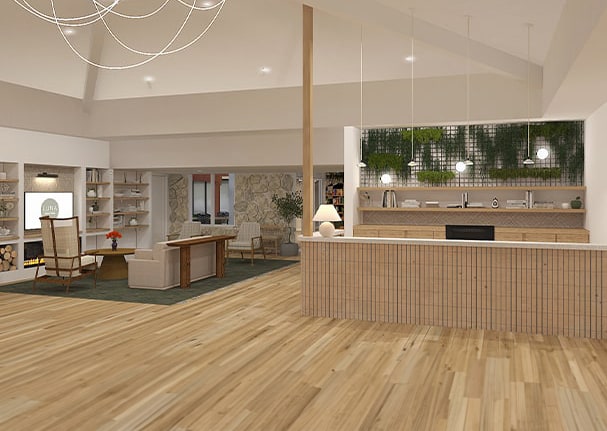Moving a parent with dementia to assisted living can be an emotional and challenging process. As a caregiver and family member, it’s normal to feel sad, guilty, and overwhelmed with the idea that your loved one needs care from a senior living community beyond what you can provide.
However, you can navigate this change with compassion, empathy, and planning. Here are some tips to make the transition as smooth as possible:
- Start the conversation early
- Research assisted living communities
- Involve a parent in the decision-making process
- Downsize and sort items
- Visit the community together
- Coordinate with healthcare professionals
- Create a familiar environment
- Help establish routines
- Foster connections
- Stay connected after the move
Making the Move
Transitioning a parent with dementia to assisted living requires a compassionate approach and careful planning with steps to guide you through this emotional process.
Start the Conversation Early
Initiating a conversation about assisted living with a parent diagnosed with dementia requires delicacy. Begin the dialogue early, allowing ample time for your loved one to process the idea.
Choose a quiet and comfortable setting, fostering an environment that can allow for open communication. Share your concerns genuinely and listen empathetically to their feelings and fears. This collaborative approach sets the foundation for a more cooperative transition, helps build trust, and reduces anxiety.
Research Assisted Living Communities
Not all assisted living communities are created equal. Take the time to research and visit various options in your area.
Look for a community that offers dementia care, equipped with trained staff and tailored programs to meet your parent’s unique needs and preferences. Engage with current residents, their families, and the staff to gain insights into the level of care and atmosphere provided.
Involve Your Parent in Decision-Making
Empower your parent by involving them in the decision-making process. Offer choices when discussing potential assisted living communities, allowing them to feel a sense of control over their living situation.
You can encourage a parent to share preferences regarding living arrangements, activities, and daily routines. When you include them in the decision-making process, you foster a collaborative approach that can ease the transition.
Downsize & Sort Items
Moving to a smaller space means that some items won’t be able to fit in the new living area. You can help your parent downsize their belongings to what is essential and familiar to them.
A helpful approach is sorting items into keep, donate, or discard piles. Adult children should note that letting go of possessions can be an emotional process for a parent. To support a parent during this time, you can approach it together.
Visit the Community Together
Visiting the assisted living community with your parent can make a significant difference, as it gives a firsthand feel of the environment.
Also, it is an excellent opportunity to get answers to any questions you and your parent may have. The staff at the community can provide you with a tour of the property, detailed information about services and programs, and even introduce you to residents.
Coordinate with Healthcare Professionals
Work closely with your parent’s healthcare team for a smooth transition. Provide the assisted living community with medical records, medications, and specific information about your parents’ needs and preferences.
Create a Familiar Environment
Pack familiar items, cherished belongings, family photographs, and sentimental pieces that can provide a sense of continuity in the new environment. Once at the assisted living community, you can recreate a sense of familiarity within their living space by arranging furniture that may mirror the layout of their previous home, promoting a comforting and recognizable environment.
Help Establish Routines
Individuals with dementia often thrive on routines. Work with the assisted living community staff to establish daily routines that align with your parent’s preferences and habits. Consistency in daily activities, meal times, and recreational pursuits can provide a sense of structure and stability. This predictability contributes to a positive adjustment to the new living arrangement.
Foster Connections
Building connections with staff and fellow residents is crucial for a smooth transition. Encourage your parent to participate in group activities, social events, and communal dining.
These interactions help them adjust to the new environment and contribute to a sense of belonging and community. Assisted living communities often organize support groups for family members, providing an additional avenue for shared experiences and advice.
Stay Connected After the Move
Moving a parent to an assisted living community does not mean that you have to cut contact with them. You can plan activities and schedule visits according to what works best for you and your parent’s routine. Communicate frequently through phone or video calls. Sometimes, a surprise visit can mean the world to them.

A Smoother Transition for a Parent with Dementia
Moving a parent with dementia to assisted living is a significant life transition, marked by both challenges and opportunities for growth. By acknowledging the unique needs of a loved one with dementia and embracing the support offered by assisted living communities, you can create a smoother transition for both you and your parent.Contact Luna Senior Living to learn how our community can care for a parent with dementia.




















